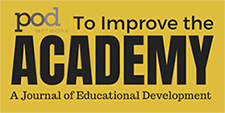Professional and Organizational Development Network in Higher Education

To Improve the Academy: A Journal of Educational Development
Date of this Version
Spring 2021
Document Type
Article
Citation
To Improve the Academy: A Journal of Educational Development (spring 2021) 39(3)
doi: 10.3998/tia.17063888.0039.308
Special issue: Educational Development in the Time of Crises
Abstract
The COVID-19 pandemic made traditionally proctored in-person exams impossible. This article provides a summary of the arguments against institutional adoption of remote proctoring services with a focus on equity, an account of the decision to avoid remote proctoring on the University of Michigan–Dearborn campus, and conclusions and suggestions for other teaching and learning professionals who would like to take a similar approach. Remote proctoring services require access to technology that not all students are guaranteed to have, can constitute an invasion of privacy for students, and can discriminate against students of color and disabled students. Administrators and teaching and learning staff at the University of Michigan–Dearborn made the decision to avoid adopting remote proctoring technologies and to instead invest in instructional design staff and faculty development programming to help faculty transition to authentic assessments. Lessons learned and recommendations are provided for other educational developers or institutions who want to resist remote proctoring on their campuses.
Included in
Curriculum and Instruction Commons, Higher Education Commons, Higher Education Administration Commons, Higher Education and Teaching Commons, Other Education Commons


Comments
License: CC BY-NC-ND